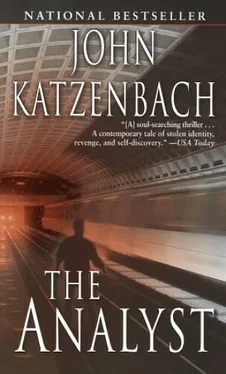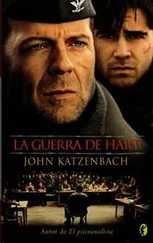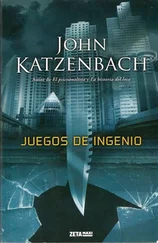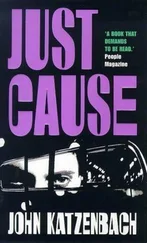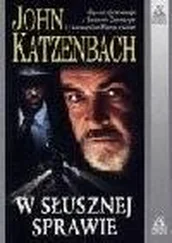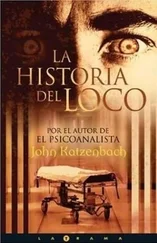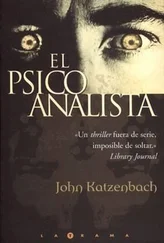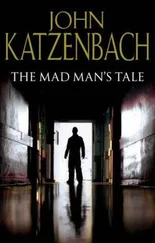The cabdriver saw his inspecting, and said, “Not bad, huh? Some of these places will set you back a buck or two.”
“Can’t get a seat in a restaurant on the weekend, I’ll bet,” Ricky replied.
“Not in the summer, or around the holidays, you got that right. But not everybody’s a city person. There’s some folks that put down roots. Just enough to keep it from being a ghost town. It’s a pretty place.” He slowed the car and then took a sharp left into a driveway. “The trouble is, it’s just a little bit too damn convenient to the city. Anyway, here you are. This is the place,” he said.
Dr. Lewis’s home was one of the old, reconditioned farmhouses, a simple two-story Cape design, painted a vibrant, glowing white, with a placard that read 1791 in one corner. It wasn’t by any means the largest of the homes Ricky had passed. There was a trellis covered with vines, and flowers planted by the entranceway, and a small fish pond by the edge of the yard. A hammock and some Adirondack chairs that were peeling white paint stood to the side. A ten-year-old blue Volvo station wagon was parked in front of a onetime stable, that now clearly served as a garage.
The cab pulled away behind him, and Ricky paused on the edge of the gravel drive. He was suddenly, acutely aware that his hands were empty. He had no bag, no simple gift, or the ubiquitous bottle of midpriced white wine to bring with him. He breathed in sharply, feeling a rush of conflicting emotions within him. It wasn’t quite right to characterize what he felt as fear, but it was the sensation that a child feels knowing that he needs to bring some transgression to the attention of a parent. Ricky wanted to smile to himself, recognizing that the burst of feelings that had turned his feet so leaden and accelerated his heart rate were normal; the relationship between analyst and analysand is deep and provocative, and functions in many different ways, not the least of which is like an authority and a child. This, he knew, was an integral part of the process of transference, whereinengaged in the process slowly takes on different roles, all ultimately leading to understanding. Still, Ricky thought, not many physicians have such an impact on their patients. An orthopedist would probably not even recall the knee or hip that he operated on after so many years and so many joints. Butis likely to remember if not everything, then much, the mind being more sophisticated than the knee, if sometimes not quite as efficient.
He stepped forward slowly, his eyes sweeping over the entranceway, absorbing all he could see. He reminded himself that this is another of the keys to analysis; the doctor knows virtually every emotional and sexual intimacy of the patient, who, in turn, knows next to nothing about the therapist. The mystery mimics the essential mysteries of life and family; and there is always a sense of fascination and trepidation about entering the unknown. He thought: Dr. Lewis knows about me, and now I will know something about him, and this changes things. The observation made him sweat nervously.
Ricky was halfway to the front steps, when the front door swung open. He heard the voice before he saw the man: “Slightly uncomfortable, I will wager.”
Ricky replied: “You read my mind,” which was something of an analyst joke.
He was ushered into a study, right off the entranceway to the old house. He found his eyes swinging from side to side, absorbing, imprinting details on his imagination. Books on a shelf. Tiffany lampshade. Oriental carpet. Like many older houses, the interior had a dark hue, contradicted by vibrant white walls; it seemed to him to be cool within, not stuffy, but fresh, as if the windows had been open to the night before and the home had retained the memory of the lower temperatures. He could smell a faint odor of lilac and there was a distant sound of cooking coming from the rear of the house.
Dr. Lewis was a slight man, bent a little at the shoulders, bald, with aggressive tufts of hair bursting from his ears, which gave him a distinctly odd appearance. He wore glasses perched down far on his nose, so that he rarely seemed to actually look through them. There were some age spots on the backs of his hands, and the slightest shakiness in his fingers. He moved slowly, limping a little, finally settling into a large red leather, overstuffed wing chair, gesturing to Ricky to seat himself in a slightly lesser armchair a few feet away. Ricky sunk down into the cushions.
“I am delighted to see you, Ricky, even after so many years. How long has it been?”
“More than a decade, certainly. You’re looking well, doctor.”
Dr. Lewis grinned and shook his head. “Probably should not start this out with such an obvious lie, although at my age one appreciates lies much more than the truth. The truths are always so damn inconvenient. I need a new hip, a new bladder, a new prostate, two new eyes and ears, and some new teeth. New feet would be helpful, as well. Probably need a new heart, too, but I will not be getting any of these things. I could use a new car in the garage and the house could use new plumbing. Come to think of it, so could I. The roof is fine, though.” He tapped his forehead. “Mine, too.” Then he cackled again. “But I am sure you did not track me down to find out about me. I have forgotten both my training and my manners. You will join me, of course, for dinner, and I have had the guest bedroom made up for you. And now, I should keep my mouth shut, which is what we in our profession believe we do so well, and have you tell me why you are here.”
Ricky paused, not precisely certain where to begin. He stared across at the old man swallowed up in the wing chair, and felt as if a string within him suddenly broke. He could feel his control sliding away, and what he said choked out past lips that quivered. “I believe I have only a single week left to live,” he said.
Dr. Lewis’s eyebrows arched upward.
“You are ill, Ricky?”
Ricky shook his head.
“I think I must murder myself,” he answered.
The old analyst leaned forward. “That is a problem,” he said.
Ricky must have spoken nonstop for more than an hour, uninterrupted by even the slightest comment or question from Dr. Lewis, who sat almost motionless in his seat, balancing his chin in the palm of his hand. Once or twice Ricky rose, pacing swiftly around the perimeter of the room as if the movement in his feet would propel his story along quicker, before returning to the overstuffed armchair and continuing with his tale. On more than one occasion he could feel sweat dripping down beneath his armpits, although the room was pleasantly cool, the windows open to the early Hudson Valley evening.
He heard some distant thunder coming from the Catskills, miles away across the river, deep explosive rolls of noise like artillery. He recalled that local legend thought the sound to be the noise made by supernatural dwarves and elves, bowling in the green hollows. He told Dr. Lewis of receiving the first letter, the poetry and threats, the stakes of the game. He described Virgil and Merlin and the attorney’s office that didn’t exist. He tried to leave out nothing, from the electronic assaults on his bank and brokerage accounts, to the pornographic message sent to his distant relative on the birthday they shared. He went on at length about Zimmerman, his treatment, his death, and the two visits to Detective Riggins. He spoke about the false accusation of sexual impropriety lodged against him with the medical board, his face turning slightly red as he did so. Sometimes he rambled, as when he spoke about the break-ins at his office and the odd violation he felt, or when he described his first effort in the Times and Rumplestiltskin’s response. He ended slightly out of chronology, talking about the impact of the photographs of the three young people shown to him by Virgil. Then he leaned back, grew silent, and for the first time actually stared across the room at the old analyst, who by now had lifted both hands to his chin, supporting his head in thought, as if trying to assess the totality of the evil that had descended upon Ricky.
Читать дальше
